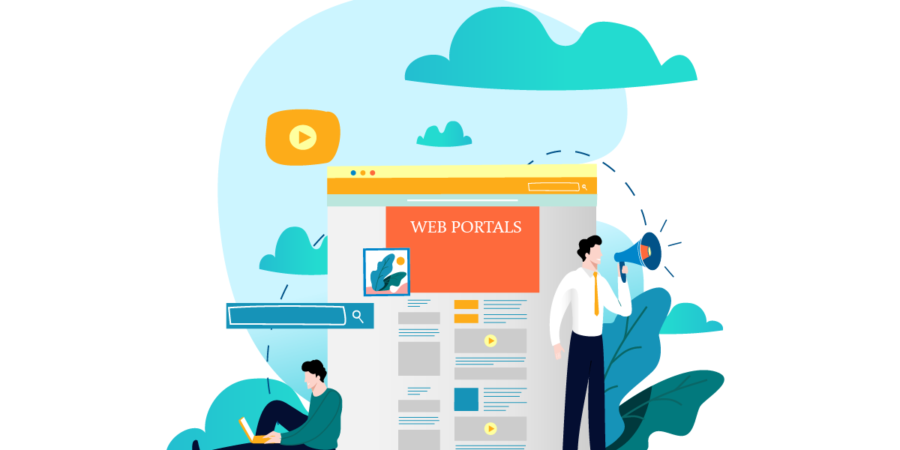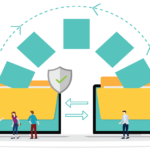Web portal types: finding the best for your business
Even before the world of remote working, there was still a strong need for web portals. Portals play a vital role in digital transformation and managing the culture shifts that come naturally with digital change. If you’re in the process of a digital transformation, then it’s worth looking into the role these web portal types can play.
Web portals are the perfect next step if you’re looking to unlock business information from across departments or locations. But before you commit to a web portal, it’s essential to know the different web portal types available and the benefits they bring.
Notable web portal types:
Vertical web portal
Vertical portals or “vortals” typically offer goods or services to specialised industries such as healthcare or accounting. Vertical portals connect users to content from different sources that are all related to the same industry.
Industry vertical B2B portals will provide the user with valuable information in their company, or their niche industry. Users of the portal will communicate and keep each other updated with industry news.
Recently, we helped a religious institution implement a portal solution for managing their data to improve efficiency. Instead of spending countless hours organising data manually, our solution let them automate the process.
Horizontal Web Portal
Unlike vertical portals, horizontal portals cover a range of topics and subjects that appeal to a broad demographic. Horizontal portals are perfect for companies looking to engage their staff through multiple different services. Companies often use these portals as a way to promote internal projects such as benefit schemes. For mid-level to enterprise businesses, horizontal portals are the ideal way to make sure all your staff are “in the know”.
Recently, we worked with a manufacturing company that was looking to develop a portal that promoted their employee engagement scheme. We helped them create a digital space for the team in the field to feel connected with the company.
Employee web portals
There’s a reason your HR department is in love with employee web portals. Before employee web portals, HR departments got a constant stream of the same questions over and over again. With an employee portal, they can ensure all the information they need is available in one place.
HR teams will use the portal to hire and train new employees quickly and easily. By giving them access to the portal, you will help them organise their work and keep up to date on events.
If you have multiple offices or remote workers, employee portals will also provide a sense of teamwork. You will also ask employees to fill out paperwork through the portal, saving time and the trees.
When clients come to us asking for a way to unite their workflow, we often suggest SharePoint implementation. With SharePoint, we create bespoke portal solutions that automate and accelerate their day-to-day work.
Partner web portals
The sole purpose of partner web portals is to develop and maintain relationships.
Partner web portals make it easy for your affiliates to get needed company or product information or printable sales tools. If you also offer any education in the form of seminars or certifications, your partner web portal can provide all course information in one place.
A platform such as SalesForce is the ideal place to keep track of and maintain customer relationships. Creating a user forum can allow partners to communicate and learn from each other while shedding some light on your partners’ changing needs.
Community web portal
Websites like Amazon use community web portals to help users navigate their extensive catalogue. These portals usually allow you to process payments through apps like PayPal or by integrating a payment gateway.
Websites like Amazon use community web portals to help users navigate their extensive catalogue. These portals usually allow you to process payments through apps like PayPal or by integrating a payment gateway.
If you’re looking to make a significant change in your business model, it’s natural that you’ll want to shift the software you use. Web portals have evolved exponentially over the past 10 years. But their essential function has remained the same — they must deliver an experience that cuts the noise and offers only what is relevant to the end-user. With an increasing focus on improving the customer experience, portals remain a key part of any digital transformation strategy.


